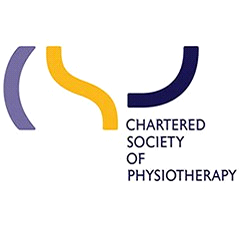FAQ
1. What is physiotherapy?
The primary focus of physiotherapy is the restoration of function. Physiotherapists assess and diagnose the problem, then plan and administer treatment programmes that aim to restore functional activity and minimise dysfunction after a disease or injury. A combination of manual and exercise therapies will be used to achieve this. Advice on posture and ergonomics is always provided, with an aim of preventing further injury or dysfunction. At one time or another we all suffer from pain in various parts of our bodies. This pain can be caused by accidents, sporting activities, surgery, wear and tear of daily life or could be the result of long standing problems. In particular our muscles, backs, necks, knees, hips, ankles, shoulders, elbows and hands can all be a source of discomfort which can limit our enjoyment of daily activities. Prompt physiotherapy treatment speeds recovery and allows a rapid return to normal activities from all these types of problems. Physiotherapy can treat a wide variety of musculoskeletal conditions that cause us pain, to include:
- Back and neck problems
- Sports injuries
- Joint problems
- Muscle, ligament and tendon injuries
- Arthritis and rheumatism
- Post surgery
- Postural problems
- Work related injuries
- Whiplash and personal injury
Physiotherapy can also be directed towards dealing with problems associated with adult acquired neurological conditions such as:
- Stroke (CVA/TIA)
- Head injury/traumatic brain injury
- Multiple sclerosis (MS)
- Parkinson's disease
- Spiral cord injury
2. Do I need to check that my physiotherapist is registered correctly?
Yes. All physiotherapists should be both Chartered and State Registered in order to practice. This guarantees that their qualification is properly recognised, they are governed by a professional Code of Conduct and covered by professional liability insurance. At the Lee Martin Physiotherapy Practice, all of our physiotherapists are Chartered and State Registered. For more information we recommend the Chartered Society of Physiotherapy site.
3. What should I expect when I attend?
You will first attend an initial assessment where the physiotherapist will take a detailed history of your condition together with any relevant past medical history. A physical assessment will then be undertaken to determine the clinical diagnosis of your problem. The physiotherapist will then work with you to develop an appropriate treatment plan. The aim of this unique programme will be to cater for your personal needs, maximise your rate of recovery and reduce the likelihood of a recurrence of the problem. The physiotherapist may suggest a number of follow up appointments to apply these treatments and will modify the treatment plan as your condition progresses. The initial assessment will last up to an hour and subsequent treatment sessions will take 45 minutes. You may be expected to remove outer layers of clothing so that the problem can be fully assessed. Your dignity will be maintained at all times and you may bring with you a chaperone if this would make you feel more comfortable. Every opportunity will be given for you to you to ask questions about your condition and to seek advice regarding its management and prevention in the future.
4. How many treatments will I need?
There is no predetermined number of treatments for a specific condition. However, following your initial assessment, your physiotherapist will discuss and agree a treatment plan with you. This may include advice regarding the approximate number of treatments that you may require. Response to treatment varies between individuals.
5. I have private medical insurance cover, can I use this for physiotherapy?
The Lee Martin Physiotherapy Practice is registered with all major private medical insurance companies. If you have medical insurance you may be able to claim back some or all of the costs of the physiotherapy treatment so long as you follow the procedures set out by your insurer. The following are tips to help you:
Contact your insurance company and check that you are covered for physiotherapy treatment of the condition you have and how many treatment sessions are available under your cover. Obtain the required claim forms and/or authorisation codes from your insurer.
Ask your insurer if you need a GP referral. If so make and attend an appointment with your GP. Describe your condition to them and ask them to write you a letter of referral for physiotherapy treatment.
Make sure your physiotherapist is aware of your insurance and is given any authorisation codes associated with your claim.
Find out if you have an excess on your policy that you are liable for – this is important as you may need to pay a certain amount as part of your policy agreement, before your insurance will start to cover your remaining physiotherapy sessions.
Contact details for major UK private medical insurers:
- Aviva 01603 622200
- AXA PPP Healthcare 0800 454080
- BUPA 0845 6090111
- CIGNA 01475 492222
- First Assist Group Ltd 01455 251155
- Medisure 0870 3331174
- Pru Health 0845 3003483
- Remedi 0207 3842929
- Simplyhealth 0800 2947302
- Sovereign Healthcare 01274 841130
- Standard Life 0845 2798877
- WPA 0800 298 9588
6. Do I need a doctor's referral for physiotherapy treatment?
Not if you are paying for treatment yourself. However, if your private health insurance covers you for treatment you may need a referral from your GP. Please check the details with your insurance company.
View the physiotherapy services that we offer, our price list or for more information please contact us.





